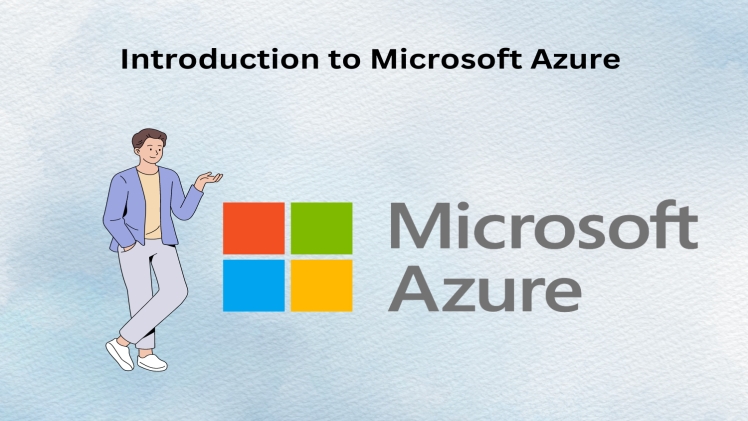With a full range of services tailored to satisfy various corporate requirements, Microsoft Azure is a standout platform among the numerous cloud service providers. Professionals with Microsoft Azure Certification are in high demand as various organisations use Azure services.
This blog will introduce Microsoft Azure and its main features, advantages, and applications. Let’s start the blog by explaining What is Microsoft Azure.
Table of Contents
· What is Microsoft Azure?
· Key Features of Microsoft Azure
· Benefits of Using Microsoft Azure
· Getting Started with Microsoft Azure
· Conclusion
What is Microsoft Azure?
Microsoft produces the cloud computing platform and service known as Microsoft Azure. It offers computation, analytics, storage, and networking, among other cloud services. Users can select and combine these services through Microsoft’s worldwide network of data centres. Azure helps create, deploy, and administer applications. With so many supported programming languages, tools, and frameworks, it is a flexible option for companies of all sizes.
Key Features of Microsoft Azure
Computing Services
Azure provides a range of computing services to suit various application requirements. Those consist of:
· Virtual Machines (VMs): Users can create and manage virtual machines with their desired operating systems and configurations.
· Azure App Services: Azure App Services allows users to build, deploy, and scale web, mobile, and API apps.
· Azure Kubernetes Service (AKS): Kubernetes-based containerised application deployment and maintenance are made easier using Azure Kubernetes Service (AKS).
Storage Services
Azure offers many ways to safely handle and store data. Those consist of:
· Blob Storage: Blob storage is ideal for storing unstructured data, such as binary or text.
· Azure Files: Azure Files provides SMB protocol-accessible, completely managed cloud file shares.
· Azure Disk Storage: Virtual machine permanent, high-performance storage is offered via Azure Disc Storage.
Networking
Azure’s networking services connect applications and data securely and reliably. Critical services consist of:
· Virtual Network: Virtual networks let customers build their cloud-based private networks.
· Azure Load Balancer: Azure Load Balancer divides incoming traffic among several virtual machines to provide high availability.
· Azure VPN Gateway: Secure, cross-premises connections between Azure and on-premises infrastructure are established using Azure VPN Gateway.
Databases
Managed database services from Azure connect with several database engines, including:
· Azure SQL Database: The Microsoft SQL Server engine powers the completely managed relational database service Azure SQL Database.
· Azure Cosmos DB: Multi-model, globally distributed database service Azure Cosmos DB.
· Azure Database: MySQL and PostgreSQL managed database services.
AI and Machine Learning
Azure offers machine learning and artificial intelligence capabilities that enable companies to develop intelligent apps. Those consist of:
· Azure Machine Learning: A cloud-based framework for machine learning model training, deployment, and management.
· Cognitive Services: Ready-made APIs for language, voice, vision, and decision-making.
· Bot Service: A chatbot creation, testing, and deployment platform.
DevOps
Azure’s DevOps services provide continuous integration and continuous delivery (CI/CD) procedures. Critical services consist of:
· Azure DevOps Services: A collection of development tools for application planning, construction, testing, and deployment.
· Azure Pipelines: Build and release are automated with Azure Pipelines.
· Azure Repos: Version control Git repositories.
Benefits of Using Microsoft Azure
Scalability
Azure guarantees that companies pay for what they use by enabling them to adjust their resources up or down according to demand. Cost control and meeting shifting company demands depend heavily on this adaptability.
Security
Microsoft Azure prioritises compliance and security. This platform also has a variety of security features, such as data encryption, threat detection based on class, and multi-factor authentication. Moreover, Azure complies with the ISO/IEC 27001, HIPAA, and GDPR standards, in addition to the international and specific industry standards that Azure accords to.
Global Reach
Azure offers high availability and redundancy with a vast network of data centres spread around Earth. This worldwide achievement guarantees companies may provide their services to clients with excellent dependability and minimal delay.
Cost-Effectiveness
Azure’s pay-as-you-go pricing approach lets companies maximise their cloud investment. It also offers reserved instances and a range of pricing tiers for long-term savings.
Integration with Microsoft Products
Azure offers smooth integration for companies using Microsoft products such as Active Directory, SQL Server, and Windows Server. Because this interoperability makes migration and administration easier, Azure appeals to companies already involved in the Microsoft ecosystem.
Getting Started with Microsoft Azure
To get started with Azure, companies can register for a free account with access to several services and credits for platform testing. Microsoft offers a wealth of documentation, tutorials, and training materials to assist customers in discovering and maximising Azure’s features.
Conclusion
Microsoft Azure is a strong and adaptable cloud computing platform with many services to suit contemporary companies’ requirements. It is a desirable option for companies trying to develop and expand in the digital era because of its scalability, security, worldwide reach, and economy. Azure offers the tools and resources to easily create, deploy, and manage apps, regardless of business size. For more information visit: The Knowledge Academy.

